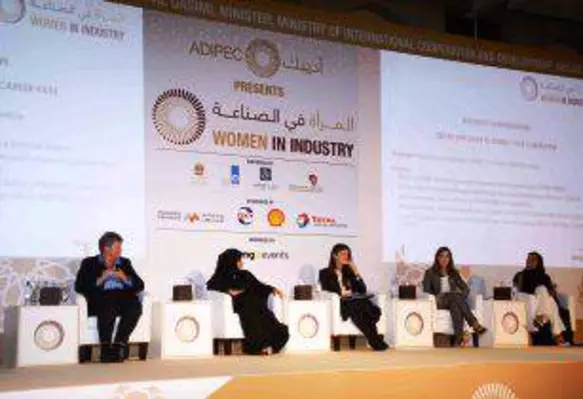Workplace diversity is becoming more important than ever as the energy sector undergoes a rapid transformation and as gender balance increasingly emerges as a factor in organisational success, female leaders said ahead of the upcoming ADIPEC 2016 ‘Women in Energy’ conference
Speaking on the occasion of Emirati Women’s Day on 28 August, female achievers said that while great strides have been made in promoting gender diversity, the oil and gas industry is still struggling with exceptionally low female-to-male ratios when compared to other fields of work.
Fatema Al Neaimi, manager, gas strategy and master planning unit at the Abu Dhabi National Oil Company (ADNOC), and a speaker at the ADIPEC 2016 ‘Women in Energy’ conference, said, “Things have dramatically improved for women in the UAE in the past few years, driven principally by the strong and unwavering support of the country’s leadership.
“However, we still have a long way to go as there are many challenges that need to be addressed, and these challenges are not just specific to this country or the region, but are global obstacles that the industry is facing every day. They are also both physical and socio-psychological in nature – from creating supportive corporate infrastructures, to inspiring women to be a part of the industry’s future developments.”
‘Women in Energy’ will take place on 9 November at Al Maared Hall, and is part of the Abu Dhabi International Petroleum Exhibition and Conference (ADIPEC), one of the world’s leading energy events and a global meeting place for oil and gas professionals.
According to a recent Reuters report, the oil and gas industry has the lowest representation of female professionals among all employers. In addition, an analysis of USA’s energy companies by global advisory firm Korn Ferry found that women make up just six per cent of CEO positions in energy.
From a global standpoint, professional networking site LinkedIn found that women make up just 26.7 per cent of all its oil and energy industry profiles. That is the lowest percentage among the industries examined — healthcare had the largest percentage, at about 59.8 per cent, and tech came in at the middle, at 30.6 per cent.
Eileen Wilkinson, vice-president for exploration in MENA at Shell, highlighted the important value that women bring to the energy workforce.
“As a geologist I am keen to play my part in addressing the tremendous challenges and opportunities that face our business and our industry – identifying the right mix of renewables and hydrocarbons which support local economies and societies. The truth is, in order to meet these demands on our shared energy future we don’t just need all types of energy, we need diversity of thought. I want to inspire young women to come into the industry. Women have technical excellence, the ability to multitask and to think through complex problems,” Wilkinson added.
Al Neaimi noted that more of a grassroots effort are needed, particularly when looking at the quality of education in the sciences.
“We need to get involved from the early stages of a student’s academic life. It is our responsibility as a community, from parents and schools, to universities and employers, to make the industry more attractive to our children. Members of the younger generation need better visibility of the opportunities available to them, and a stronger understanding of the impact they will be making by joining the oil and gas industry.”










